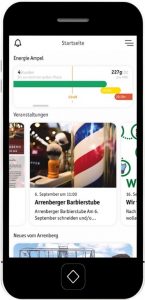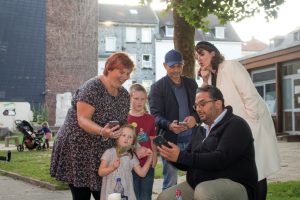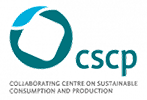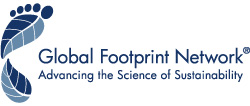Sustainable Energy Supply

© Gunnar Bäldle
Aufbruch am Arrenberg e.V. was founded in 2008 as a non-profit association for neighborhood development. Since 2015, it has been home to the Klimaquartier (Climate Quarter) Arrenberg initiative, which strives to transform the neighborhood into a climate-neutral community. In addition to real estate development and mobility, projects focus on the circular economy and energy transition. In the area of sustainable food system, food sharing, community farming and Restaurant Day have become firmly established over the years.
One example of the many projects of the Climate Quarter is its innovative energy transition initiative. Together with WSW and Bergische Universität, Aufbruch am Arrenberg e.V. has built a virtual power plant which controls decentralized generation systems, such as rooftops photovoltaics. Its corollary “energy weather forecast”, which shares data on the level of local CO2 emissions now and in the coming hours or days, is a unique project in Germany. End users simply check the “energy weather” on their mobile devices or in the Wuppertaler Rundschau newspaper. Using the data, they can, for example, wait for a low-emission time window in order to use their dishwasher. Three years of field research were conducted alongside the project.
“It would be stupid not to take part,” says Wolfgang Meyburg.
Facts and Data

© Gunnar Bäldle
- Average CO2 emissions per kilowatt hour were reduced from 490g to 475g. For comparison: In the last 15 years, Germany has seen an annual reduction of 9g/kWh. In total, with just 500 participating households, 30 tons of C02 could be saved only by shifting instead of avoiding power consumption. For the whole of Wuppertal, this shift in electricity demand lead to an estimated 10,500 tons of CO2 avoided per year.





